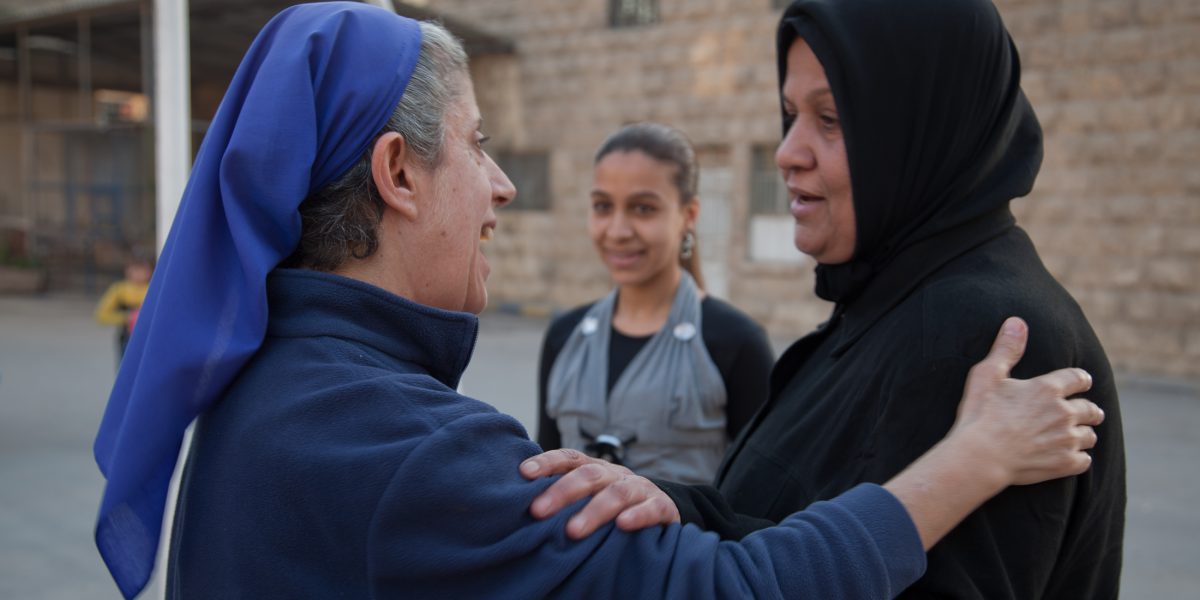As Conflict Enters Its 10th Year, JRS Continues to Call for Commitment to Displaced Syrians
13 March 2020

This week, the Syrian conflict enters its 10th year. There are millions of men, women, and children who have been forcibly displaced due to the continuous war. According to UNHCR, The UN Refugee Agency, more 5.6 million Syrians have fled the country, another 6.6 million people are displaced within Syria. Nearly 13.1 million people in Syria need humanitarian assistance. The war has resulted in damage to the healthcare centers and hospitals, schools, utilities, and water and sanitation systems. Families have also been separated, with little hope for reconnecting or resettlement. More than half of the people affected by the Syrian conflict are children.
Children make up more than 60 percent of those who’ve been driven from their homes. Many of these children remain out of school, with one third – or nearly 3 million school-age Syrian children – out of formal education.
As of January 2020, violence has escalated in Syria, attacks have moved further north to Idlib, and many displaced people have found themselves fleeing towards the border of Turkey. “JRS is deeply concerned by the initiation of new hostilities in Syria and the human impact this will have. We urge all policy makers to consider the impact of decisions upon the people of Syria who have already endured protracted suffering. Additional violence and displacement do not serve the long term good of Syria or the region. JRS requests the immediate suspension of all hostilities and the protection of civilians. JRS also urges all parties to ensure safe access to civilians and [internally displaced persons] by humanitarian organizations, “Jesuit Refugee Service Middle East and North Africa said in a statement.
JRS remains committed to our Syrian brothers and sisters who have been displaced by the war, both within the country and those who manage to cross the border. We currently work to serve those in need of emergency assistance, psychosocial support, community building, income generating activities, and education. JRS has been serving displaced Syrians in both Syria and host countries since the beginning of the conflict.
In Syria, JRS’s work began before conflict broke out by serving Iraqis who fled to Syria. Since that time JRS has remained in Syria – and remains one of the only humanitarian organizations serving. JRS teams have experienced great threats.
JRS has also served Syrian refugees in host countries around the world. In the region, our work in Lebanon and Jordan has helped Syrian Refugees access education or work through trauma. In Europe, JRS has helped Syrian refugees with everything from legal assistance to recreational activities.
Learn about Zahra and Reem, two Syrian refugee sisters in Damascus that attend the JRS Community Center. The Center provides English courses, reading and writing classes, as well as fun activities for the youth. After their father died and mother remarried, they were abandoned then sent to live with their aunt and uncle.
Since they’ve started going to the Community Center, their confidence has increased as they engaged with other students, learned new skills, and have had the opportunity to be children. The girls have also been enrolled in school for two years, after they dropped out for several years.



